Abstract
Since the public sector traditionally has provided the public goods viewed as unprofitable by the private sector, the growing trend to manage public hospitals under outside private contract raises some fundamental issues of concern. It is hypothesized here that the system maintenance and output goals of privately managed public hospitals become increasingly similar to those of investor-owned hospitals. The thesis is empirically tested using documented effects of private contract management on the operative goals of short-term, general hospitals owned by local governmental bodies. Traditionally managed public hospitals matched with the study hospitals on important characteristics serve as the control group. Costs do appear to be reduced under private contract management, but the service structure becomes somewhat altered. It is the task of public health policymakers to reconcile the cost-control and efficiency mechanisms brought about by private management with the community's right of access to comprehensive medical care. Carefully structured regionalization plans--a possible means of providing both--will require the stimulation of more government involvement during an era of cutbacks.
Full text
PDF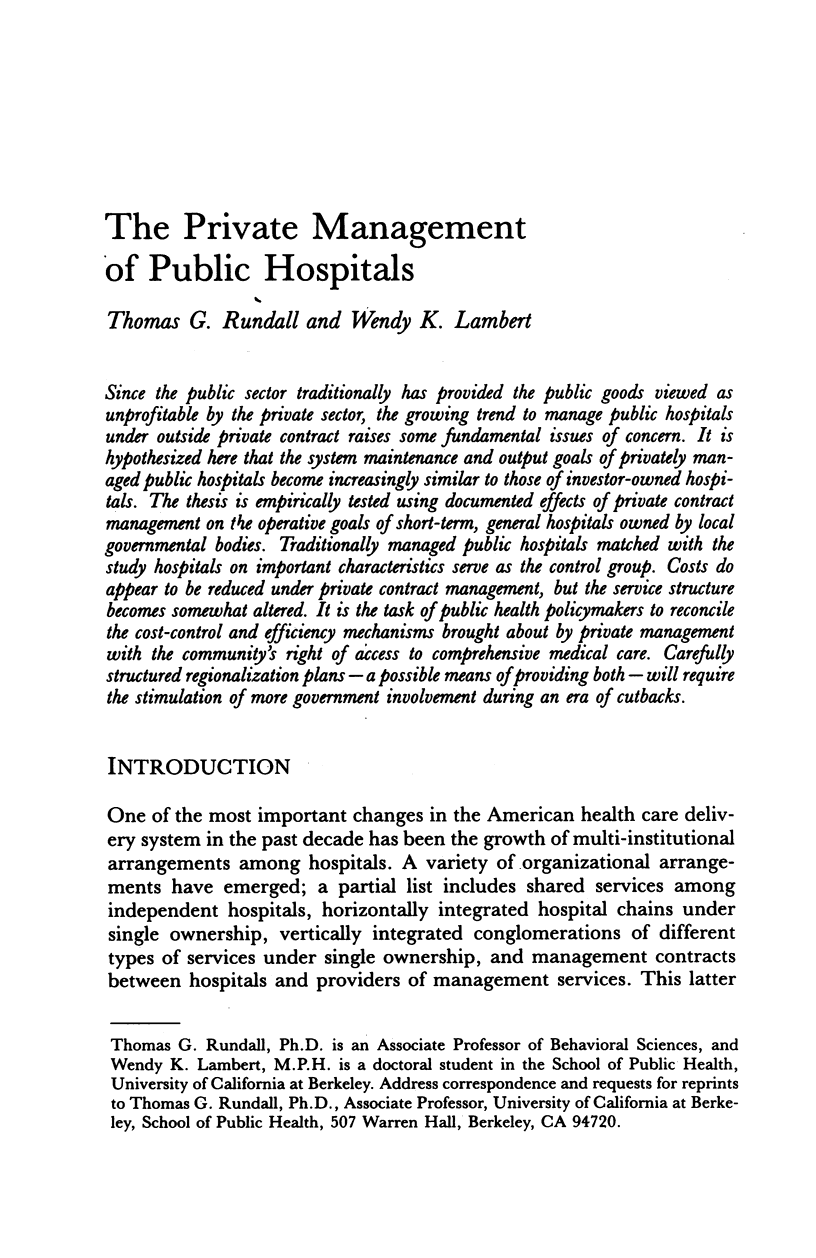
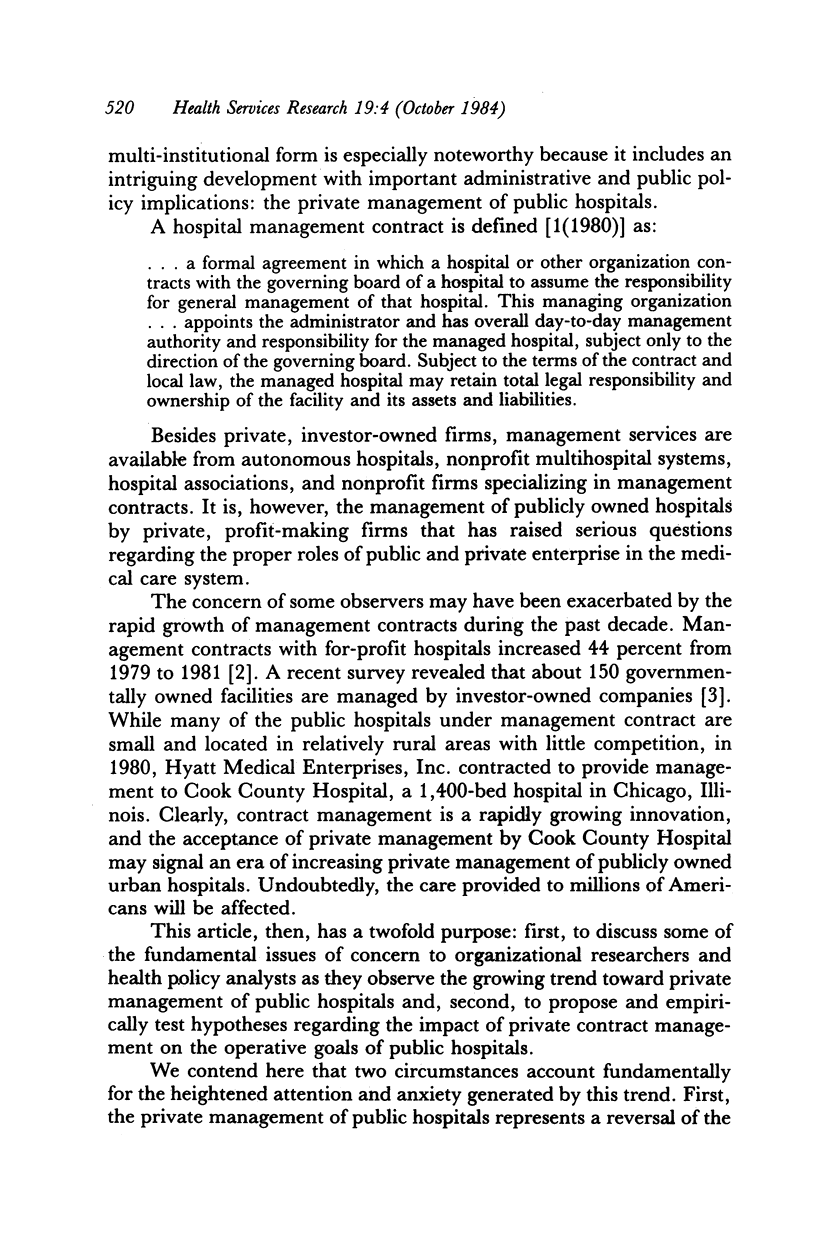
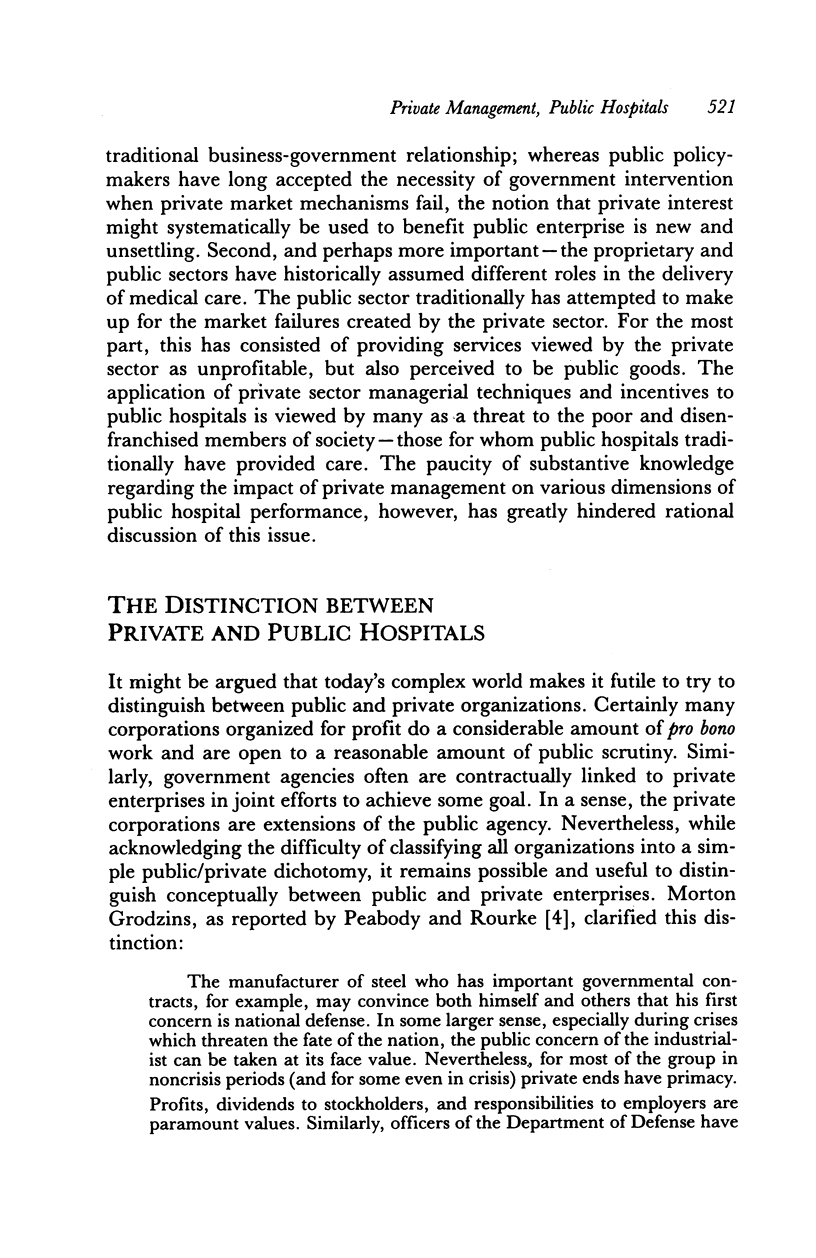
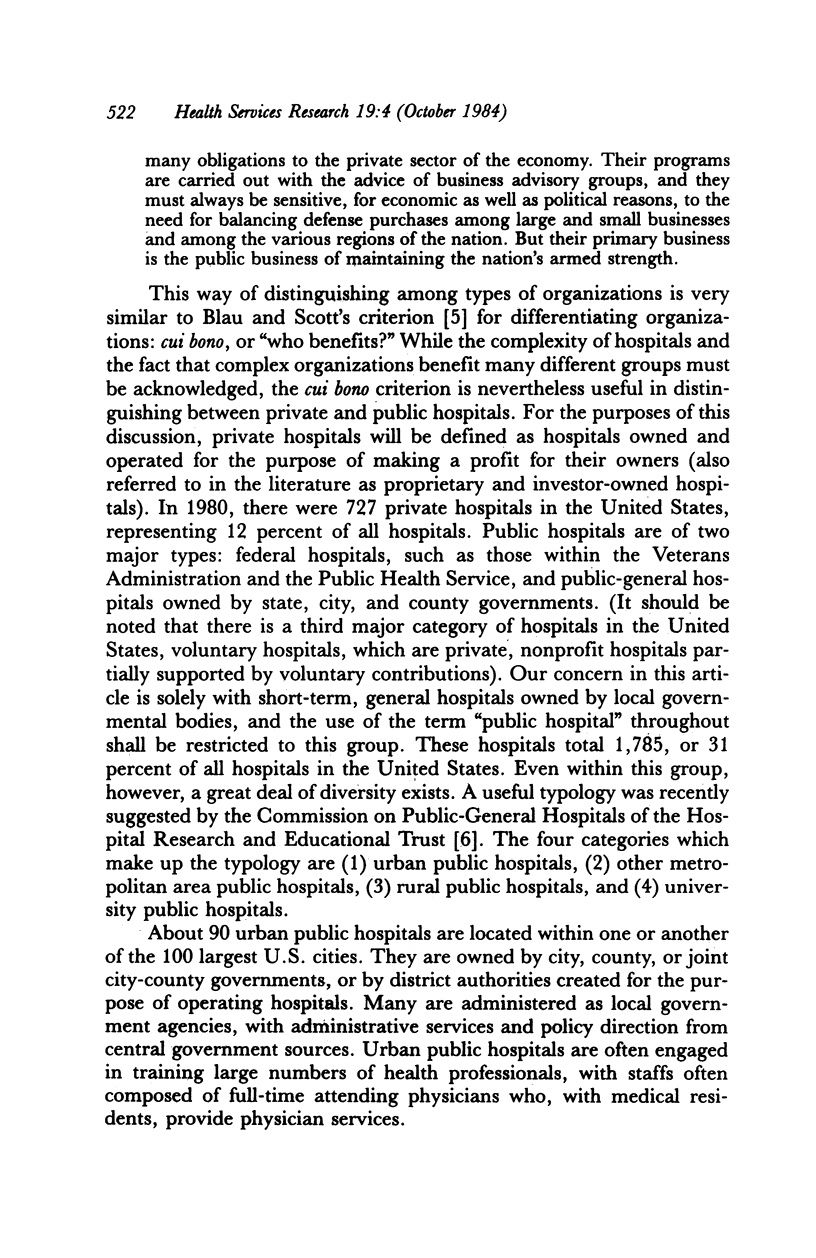
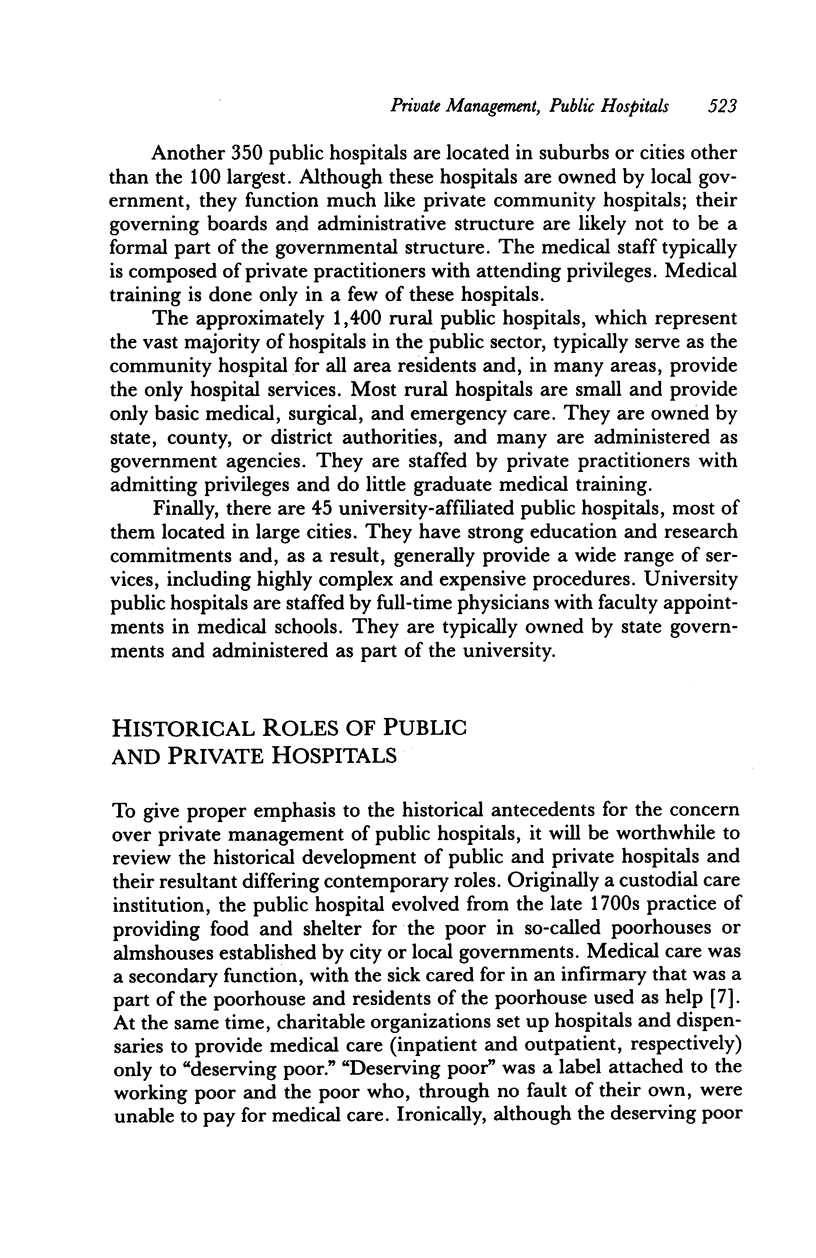
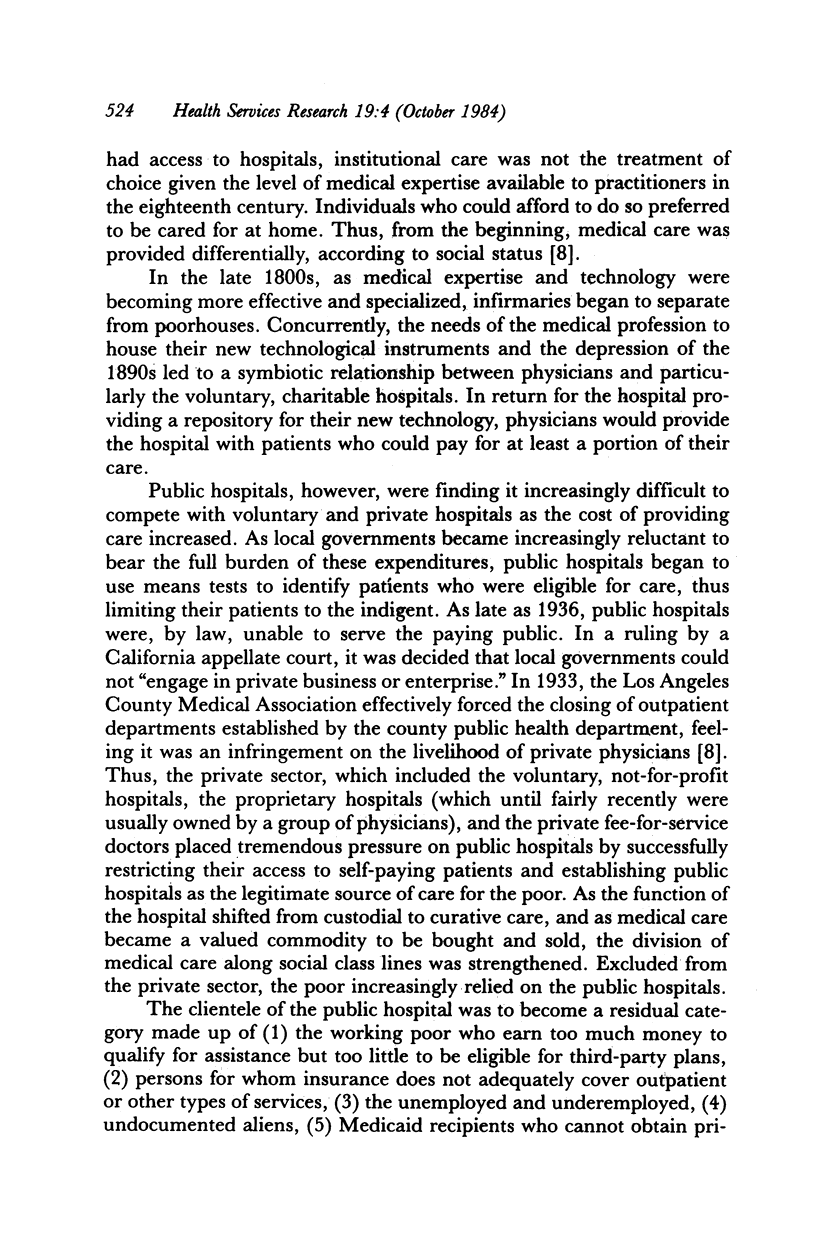
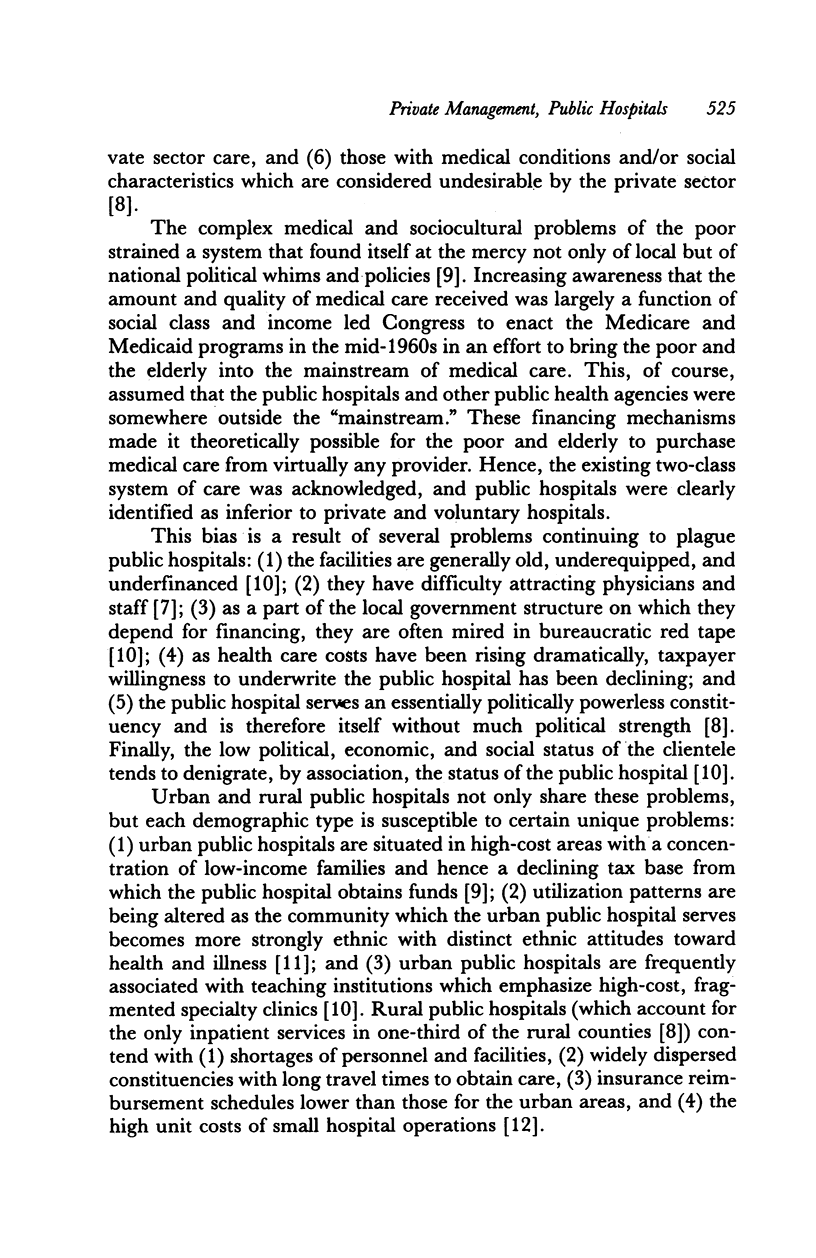

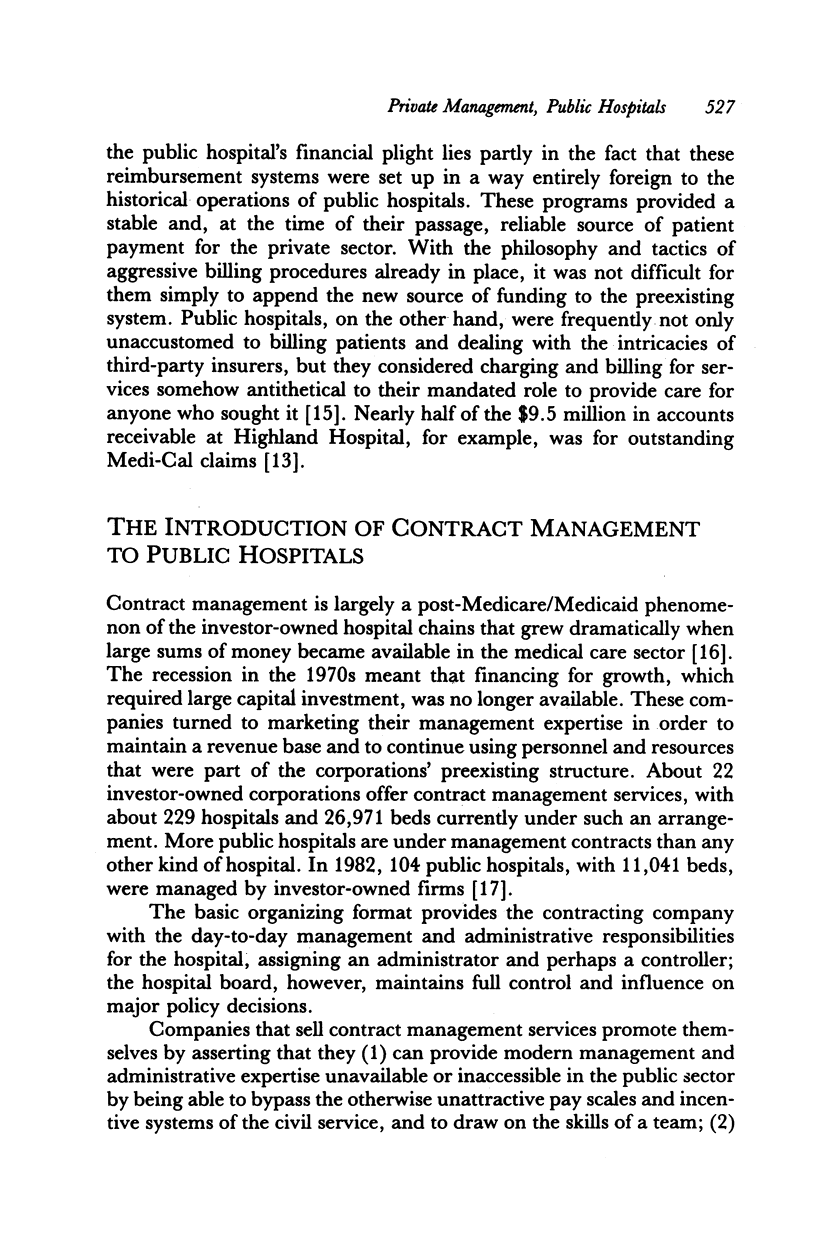
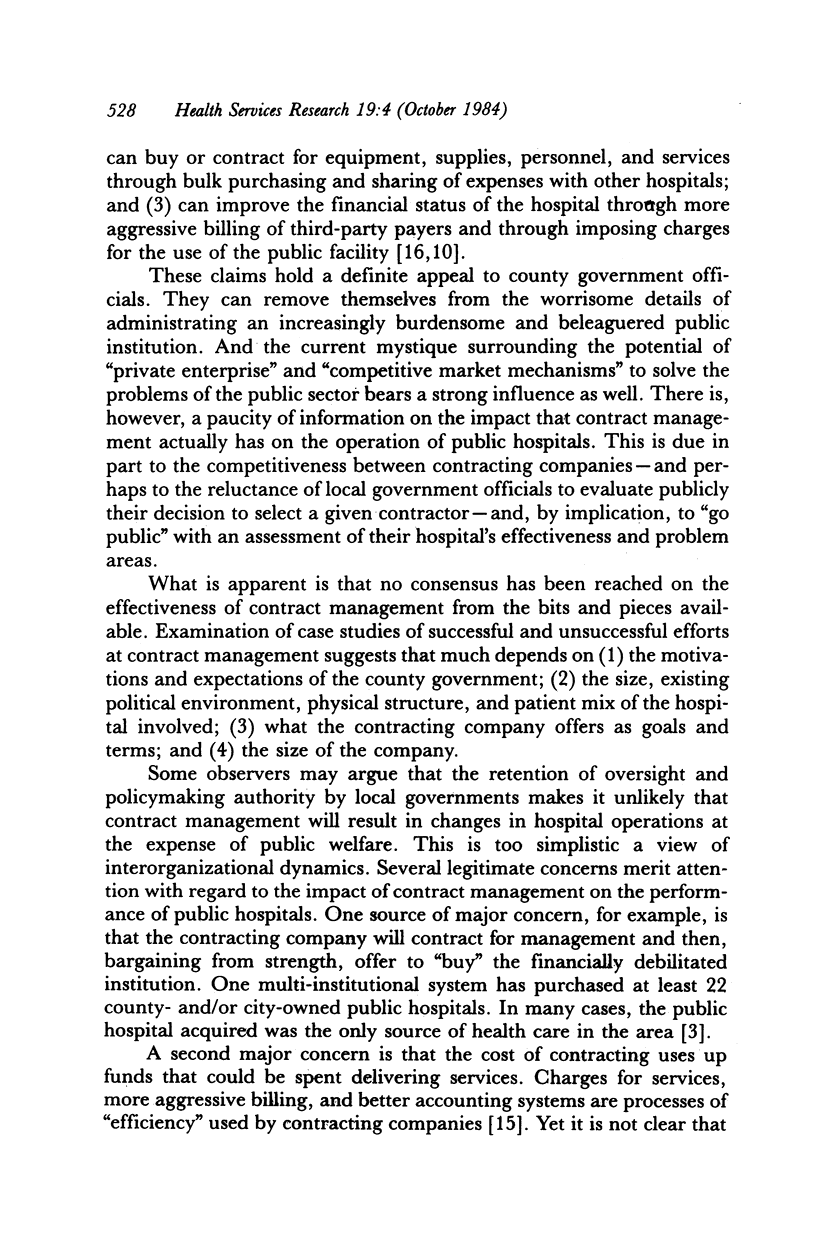


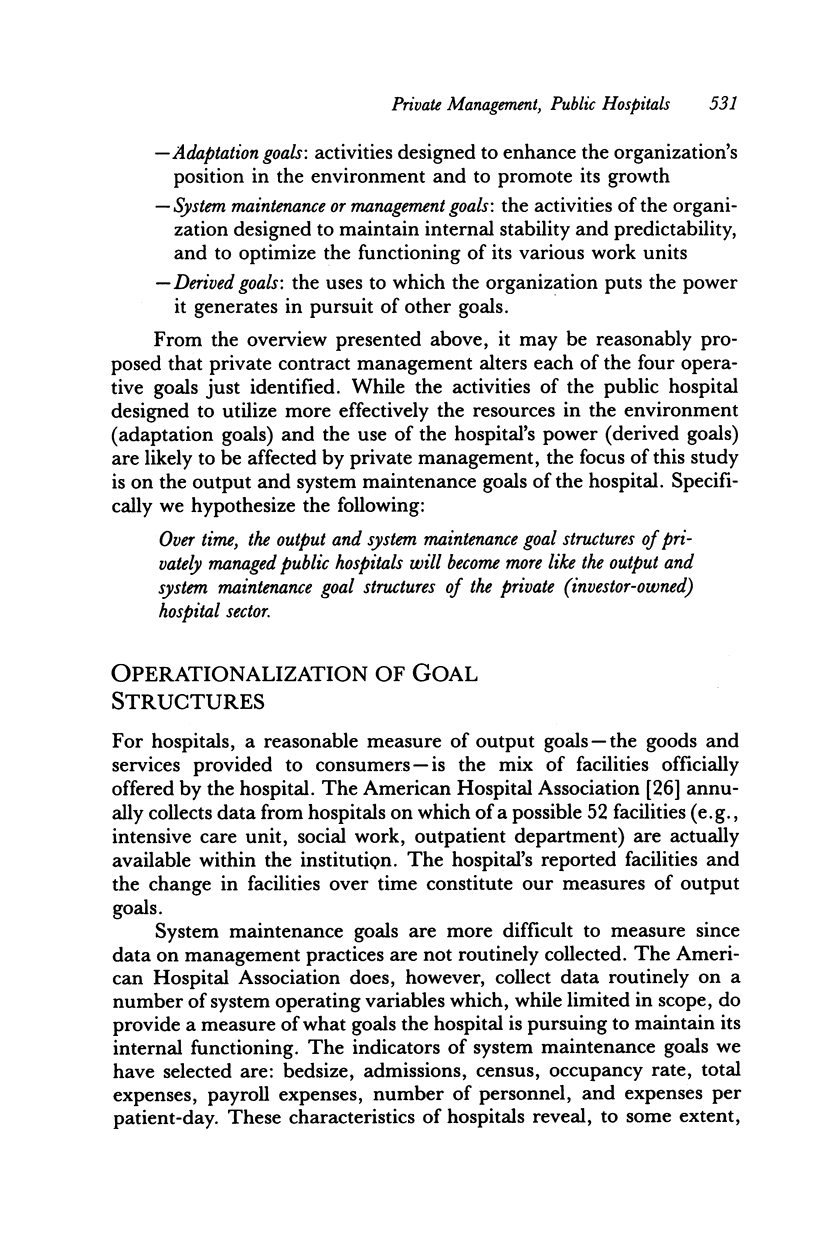
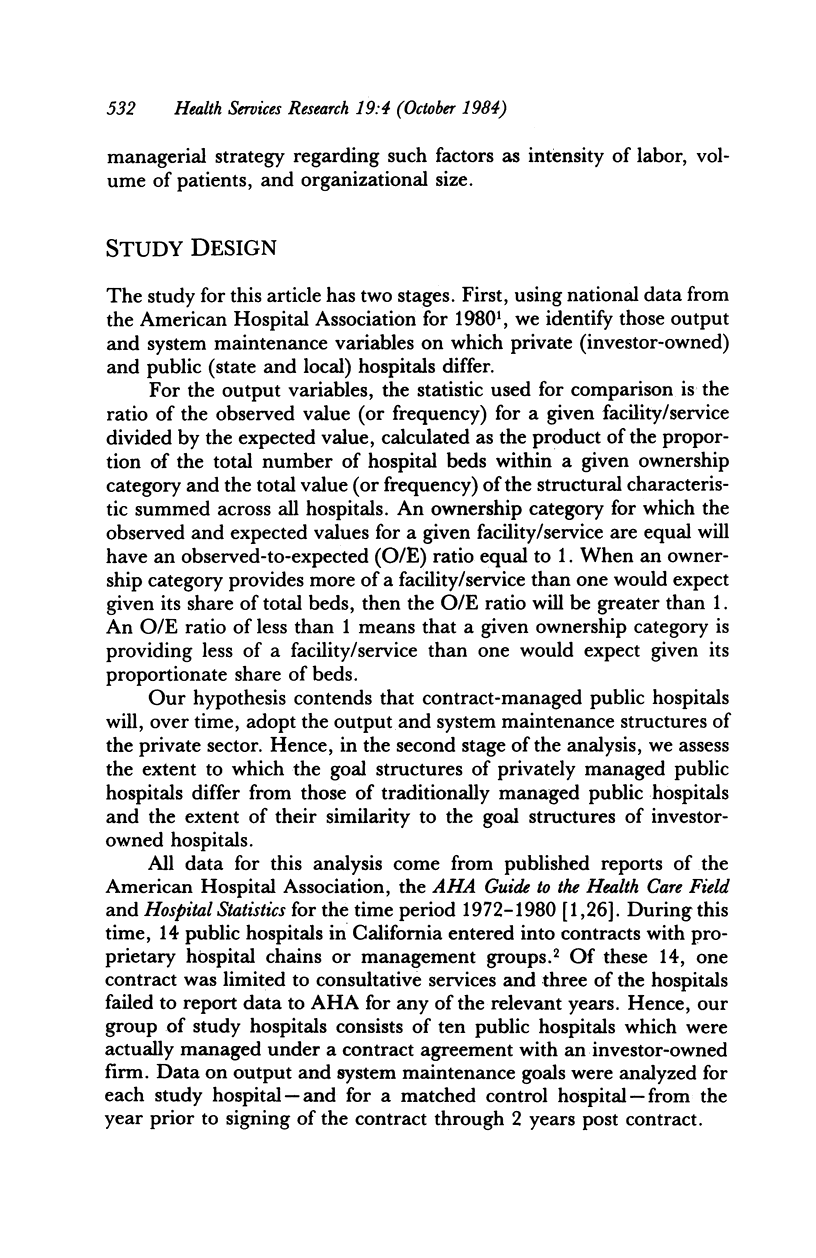


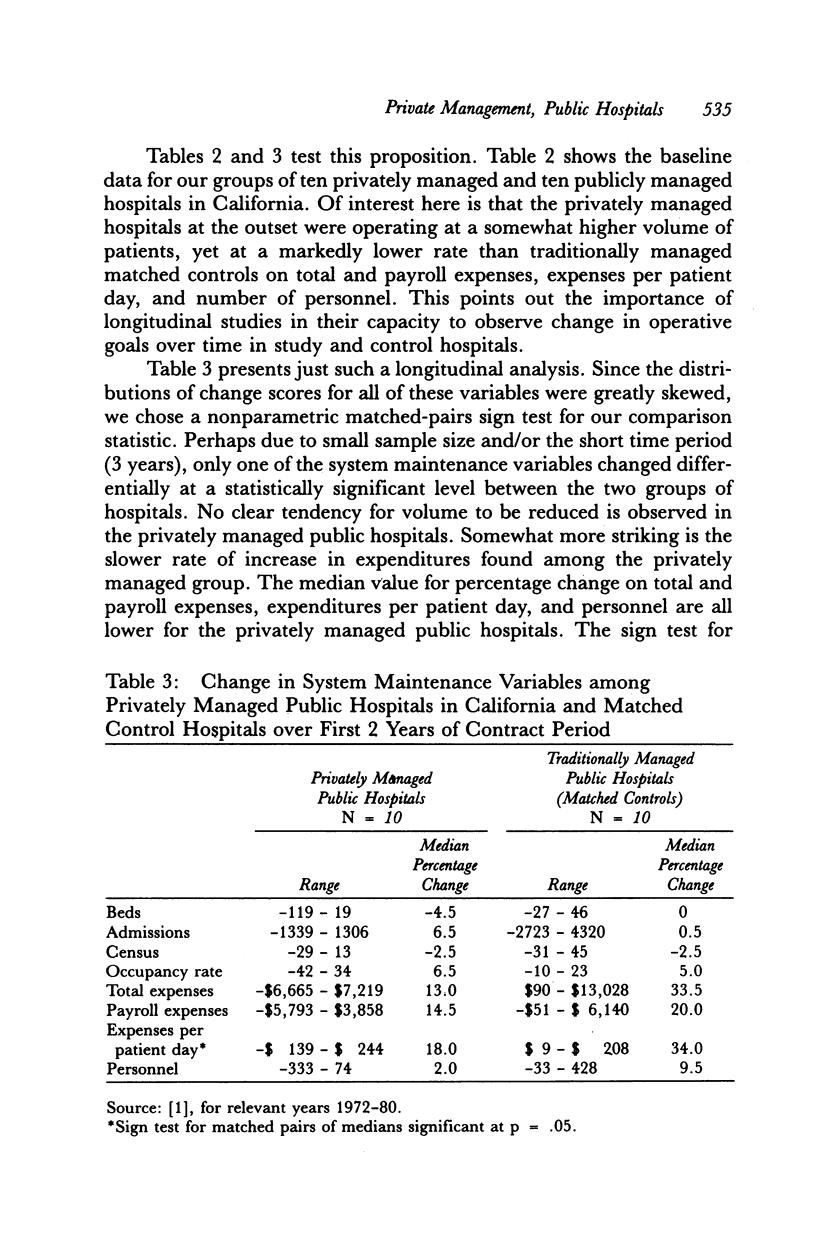
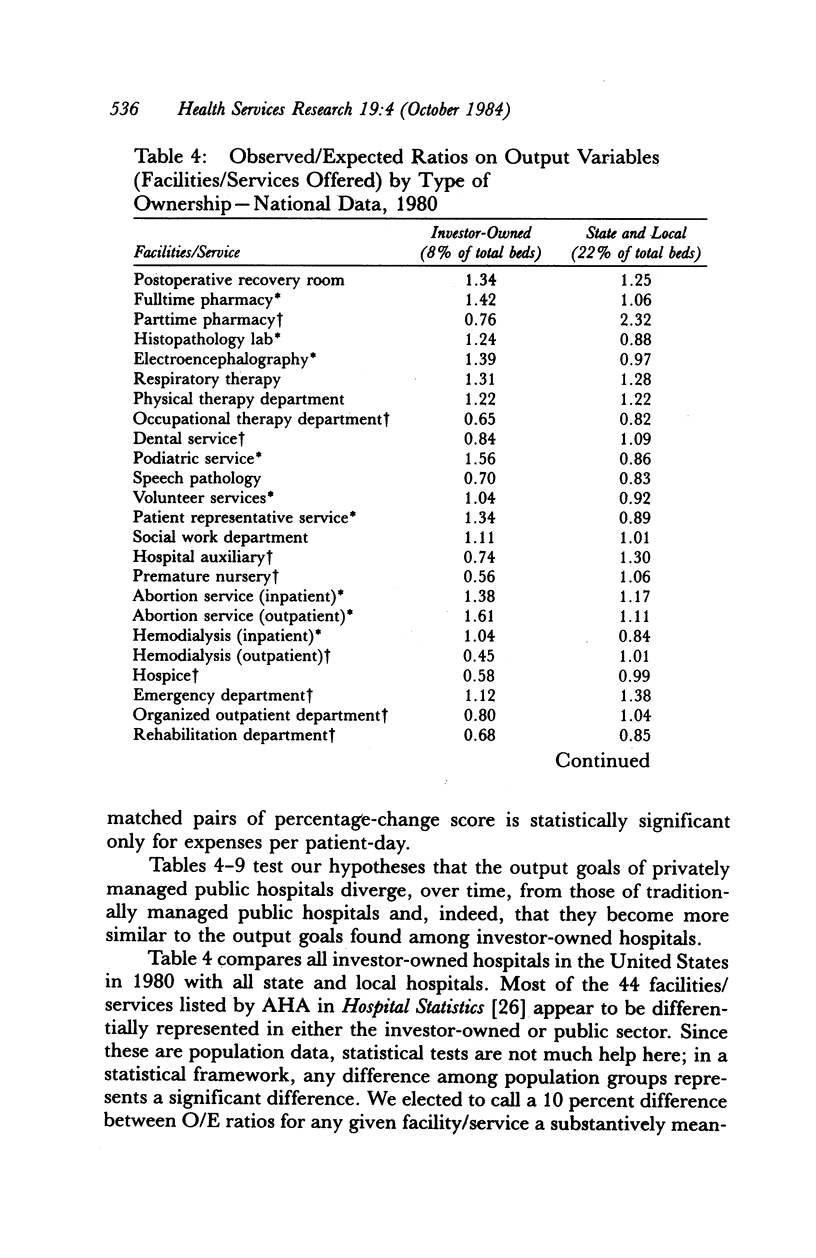
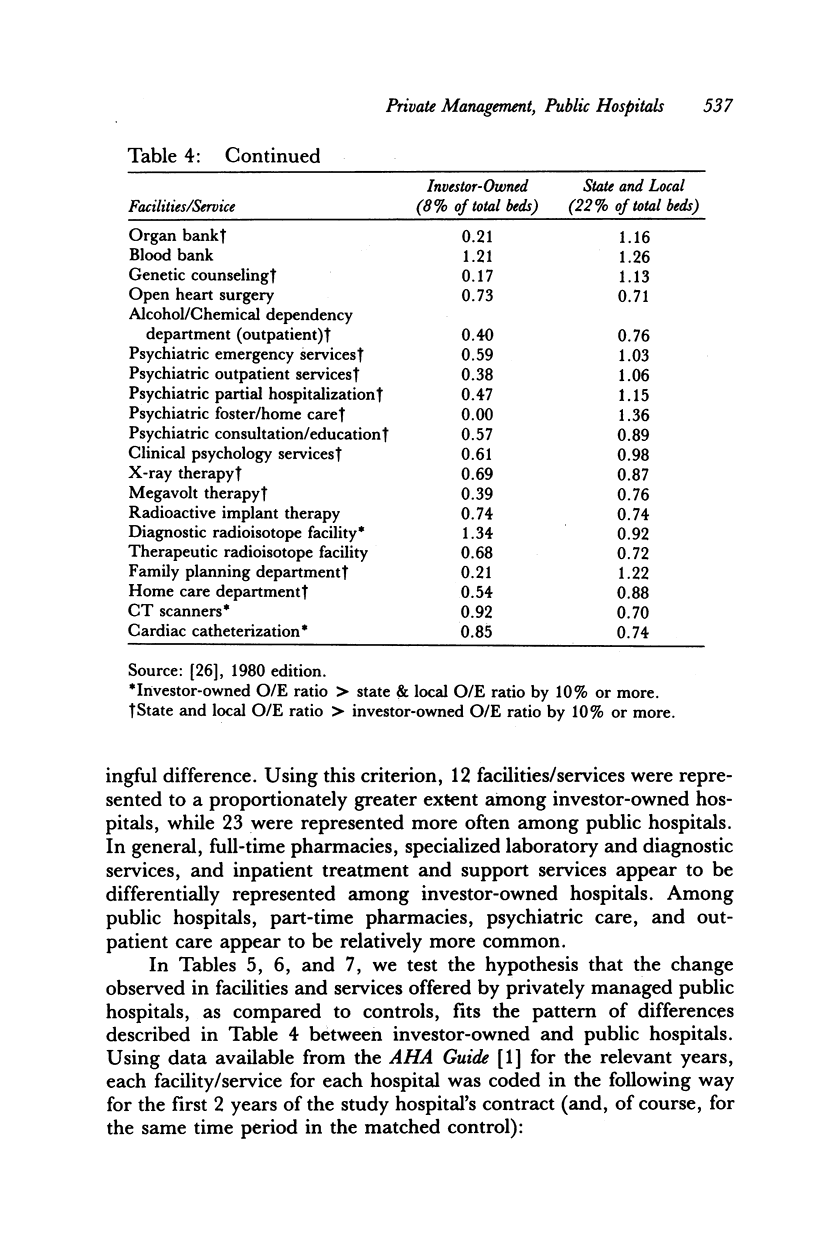
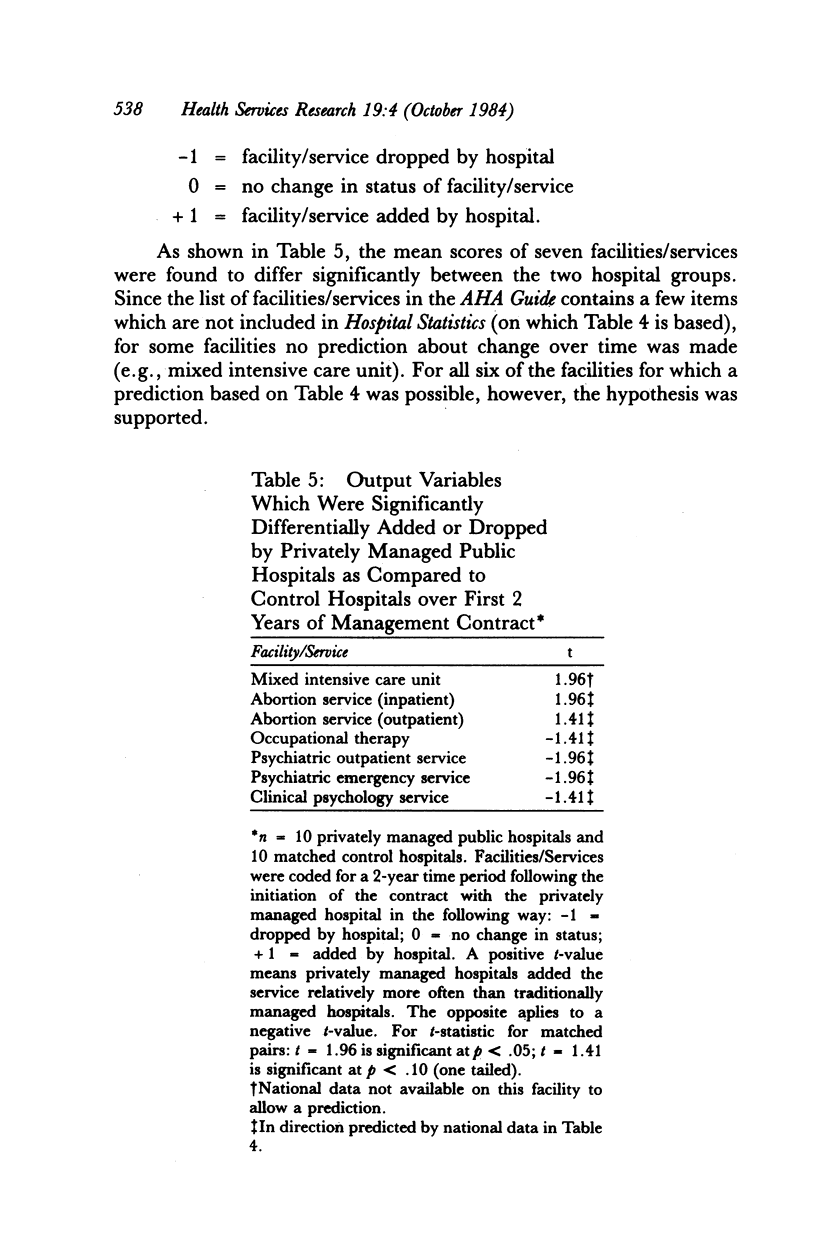
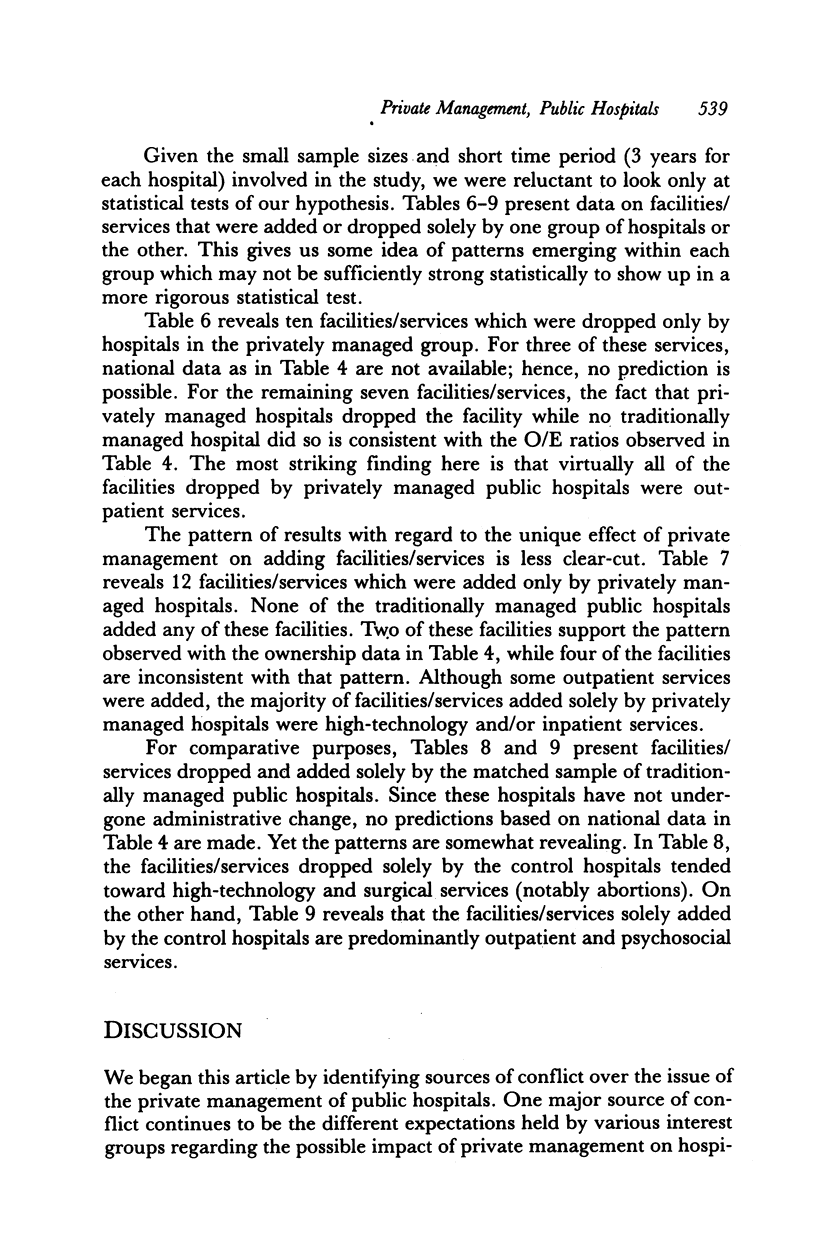
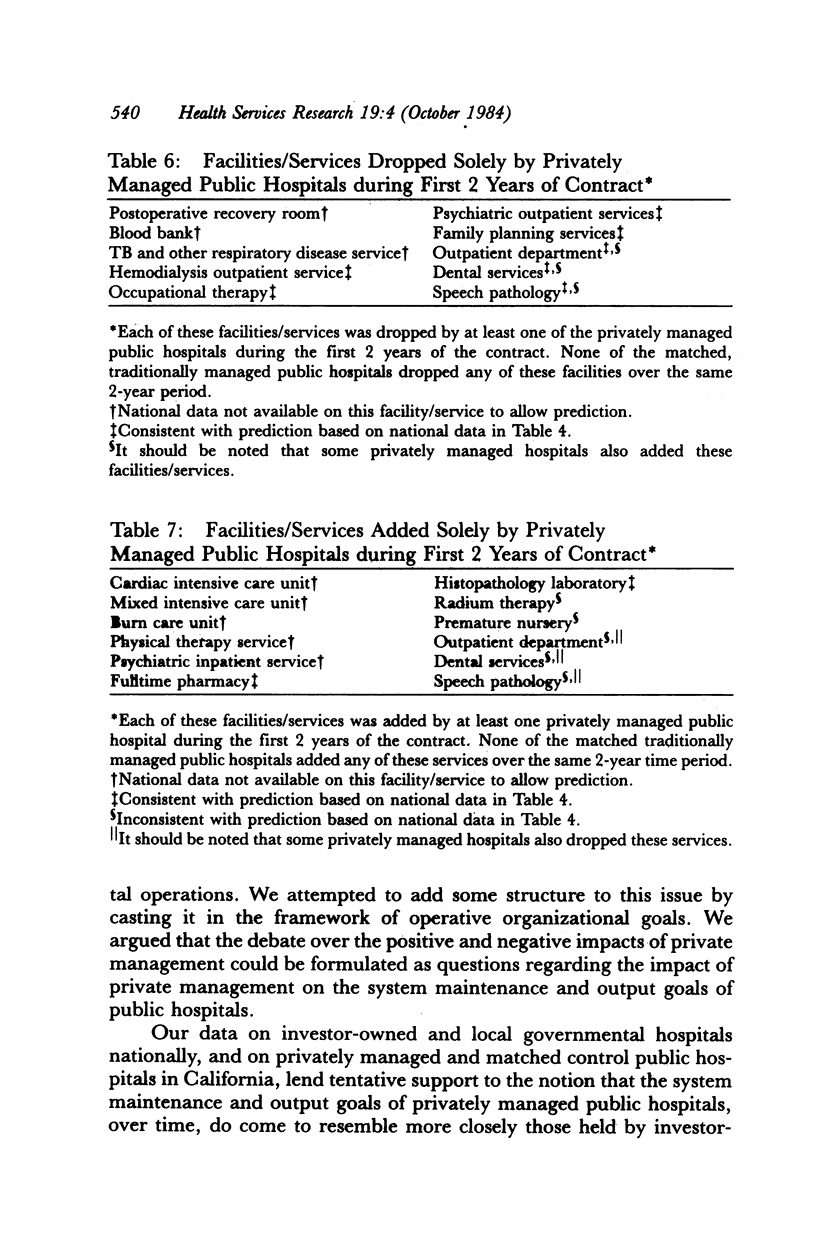


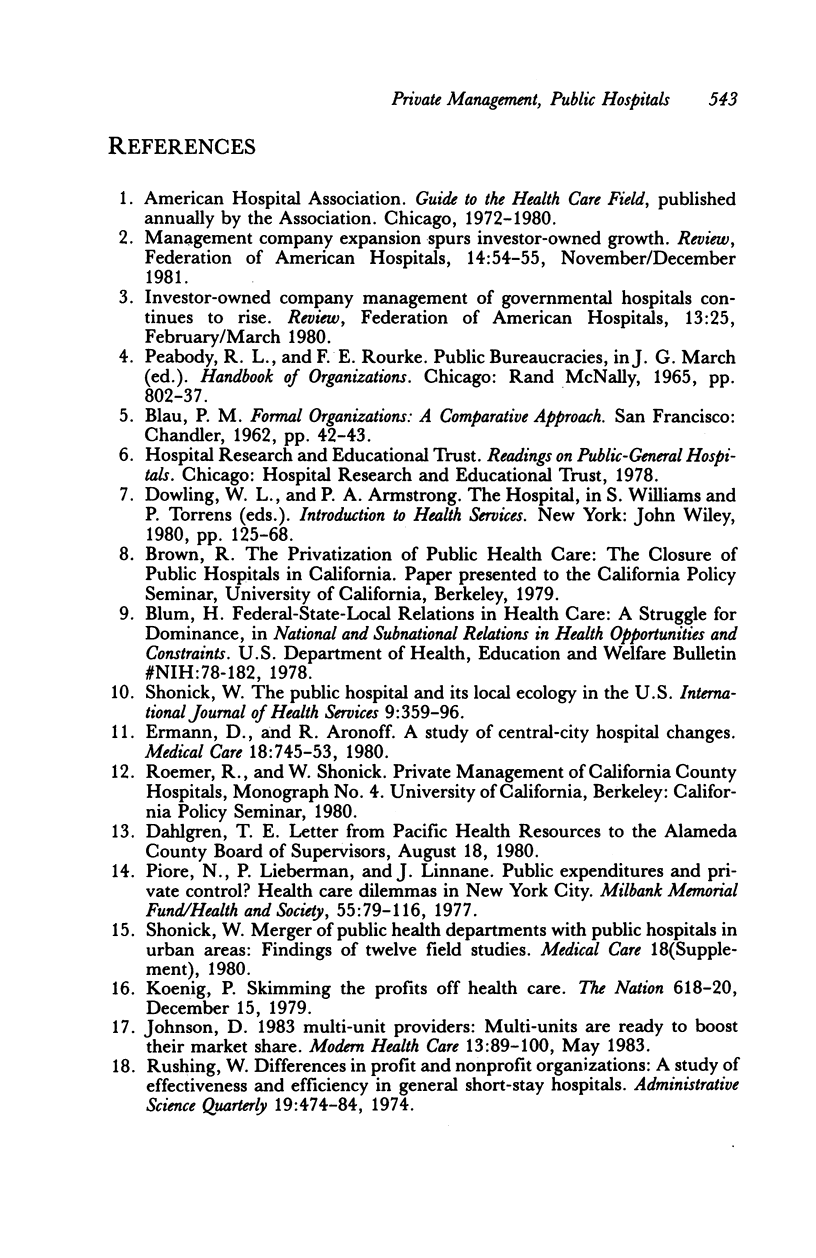
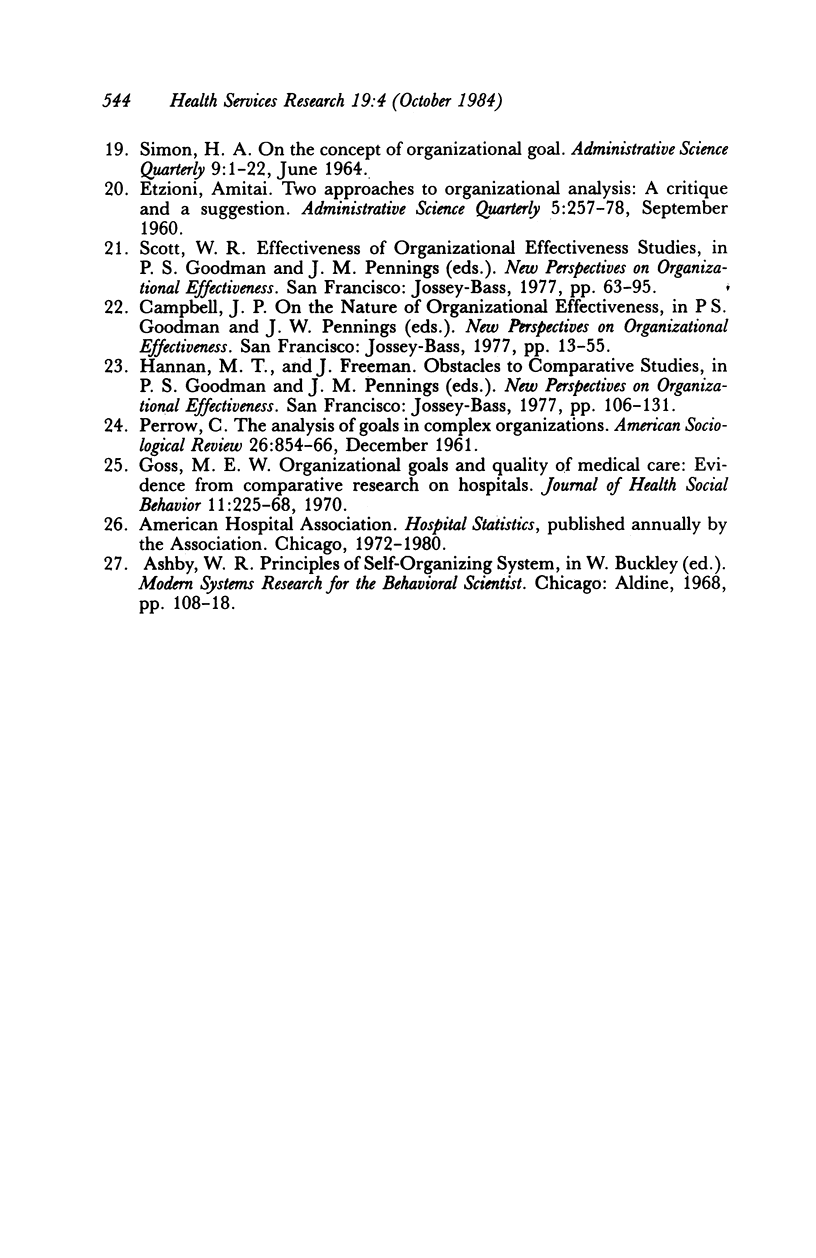
Selected References
These references are in PubMed. This may not be the complete list of references from this article.
- Ermann D., Aronoff R. A study of central-city hospital changes. Med Care. 1980 Jul;18(7):745–753. doi: 10.1097/00005650-198007000-00004. [DOI] [PubMed] [Google Scholar]
- Johnson D. E. Multi-units are ready to boost their market share. Mod Healthc. 1983 May;13(5):89–100. [PubMed] [Google Scholar]
- Piore N., Lieberman P., Linnane J. Public expenditures and private control? HEALTH CARE DILEMMAS IN New York City. Milbank Mem Fund Q Health Soc. 1977 Winter;55(1):79–116. [PubMed] [Google Scholar]


